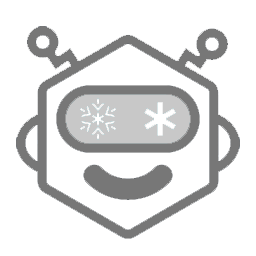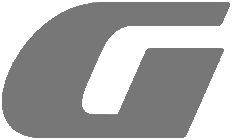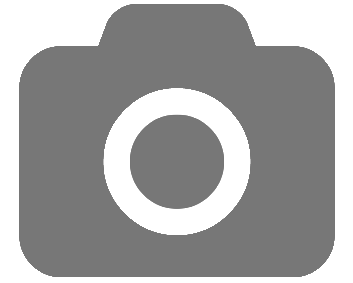Quarter Life Crisis
This year I turned 25. Last year I turned 24 and naturally saw this “quarter-century” milestone coming. So long as I survived the year, I would (and did) turn 25.
It was the only semi-certain thing that I could predict and naturally, it freaked me out. This 25th birthday could mark the quarter point in my life, but depending on where fate takes me, it may mark something more substantial - my half life, my 80% life, etc. Without a doubt, it marked halfway through my twenties which is arguably the most opportunistic period of one's life. With little responsibility and a lot of naivete, the room for potential growth during this period is immense.
A few months into this 24th year, I wanted my road to 25 to embody that. During my very early twenties, I spent my life getting a degree and the few years following that entering the workforce; both extremely “sponge-like” periods of anyone’s life, but more-so inflicted by their circumstances.
But the start of 24 felt slow. The winds of the world were not naturally taking me down any hyper-growth path and so, I decided to embark on a year of learning. That year has taken me through a period of self-assessment and more importantly, an objective look in the mirror that has allowed me to enter the second half of my twenties once again as a sponge and perhaps the most effective and focused sponge to date.
So far, these have been my twenties:
- 20-21: School sponge
- 22-23: Work sponge
- 23: Working remotely sponge
- 24: Self-inflicted learning sponge
WTH is a Sponge?
Before I get into the meat of this article, you’re probably like “why does she keep calling herself a sponge?”.
I would like to define a “sponge” in the context of this article as someone that rapidly absorbs knowledge or awareness, growing substantially in some way as a result.
I also think it’s important to acknowledge that there are only a few points in life where society pushes you towards a phase of sponge. Some examples:
- Growing up (social sponge)
- Having a kid (responsibility sponge)
- Taking a degree (knowledge sponge)
- Losing a loved one (emotional strength sponge)
Most of the classic sponge phases occur closer to the beginning of one’s life, followed by a few decades of stability. While stability isn’t bad, I’ve recently come to realize that the best and most sustainable growth comes from consistent sponge behaviour. I’ve also come to realize that later in life, this behaviour needs to be self-directed. So, starting in February I embarked on my Year of Sponge™.
My Year of Sponge
I order to embark on my year of sponge, I needed to do a few things:
- Acknowledge that I’m not that great
- Identify gaps in my life
- Hold myself accountable and track my progress
In more practical terms, I took a snapshot of my life. I brainstormed the hell out of things that would potentially benefit my life, ranging from the more traditional (building a business, writing a book, learning to surf) to the more offbeat. I came up with a solid list of things that I would target and more importantly, actively deprioritized others - not just for this year, but in some cases for the foreseeable future.
In order to make space for the most important goals, I needed to remove the noise of other options that were nice but not as beneficial to my future growth and happiness.
I tried to think more long-term than I had in past goal-setting and ultimately what rose to the top was learning to code (starting with this course). This quickly became my top priority when I realized it consistently limited me from participating in the places I wanted to participate, from being able to intelligently contribute to conversations that I was a part of, and realistically from building the life that I had long prioritized.
This year has been one of the most rewarding years of my life with a tangible output of learning a new skill set and launching 4 projects under my own name, some of which have won awards or topped ProductHunt. It is for these reasons, that I chose to share what worked for me during my Year of Sponge.
How to Sponge
Hold Yourself Accountable
One of the biggest developments enabling “sponge-dom” was some radical candor with, well... myself. It was the active recognition that I had spent most of the prior year learning to work remotely, but ultimately, that was not an end-goal (I could write an entire article on this alone).
The best way to hold yourself accountable is to take an active inventory of your “fuckbucks” and acknowledge where your actions != your values.
- Those Instagram influencers whose lives you know are fake? Unfollow them. Or better yet, delete Instagram.
- That ex who cheated on you? Forget about him.
- That TV show you know doesn’t offer any value? Stop watching.
Your life is defined by the time you spend, and time adds up.
Set KPIs
The most important step that I took was setting key performance indicators (KPIs) for myself. We are very quick to hold KPIs at work or even in your relationships (keeping score), but not with ourselves. You should want to be the most accountable person to yourself.
For me personally, I’m aware of many different versions of myself. There’s productive Steph, but there’s also perma-tired Steph, hungry Steph, distracted Steph, etc. The only way to keep all versions of Steph accountable is to have a metric that I can actually check in on and try to improve.
People mistakenly think that things will improve on their own, but setting KPIs helps bring awareness to how much effort is needed to actually move the needle. Below is a glimpse into my personal tracking, where I actively tracked every day of this year and how often I coded, exercised, and more.
A very important note on these KPIs: unlike most KPIs, these are for yourself. These are not degrees that you flaunt on your LinkedIn or Twitter followers to justify your “reach”; these are for your eyes, so there is no point in mis-tracking or choosing a metric which doesn’t truly align to your goals.
But that’s the beauty, with no one to deceive, you completely own your success or lack thereof. The is no bullshitting, automating, or “reframing” your own goals and certainly not the effort put into getting there.
Ideas <<< Execution
You may have “very good ideas” heading into 2019, but so do I and so does the guy on the bus and his wife and her grandfather. To sponge (yes, it’s now also a verb), you must acknowledge that many people have good ideas, but most will not put in the effort to realize them for sustained periods of time. I’ve come to realize that greatness is simply good, but repeatable.
I also think that active acknowledgment of the discomfort of learning, is essential.
Every skill can be defined by the above learning cycle:
- Unconscious incompetence: Essentially, you don’t even know that you don’t know something or that you’re bad at something. This is essentially ignorance, aka bliss.
- Conscious incompetence: You’ve identified that you can improve at something. Not a very fun place to be but this is the phase of sponge; ie: the phase of growth
- Conscious competence: Once you’ve improved, you’re still very concentrated on being able to do that thing.
- Unconscious competence: Rare, but something you are so skilled at that it takes minimal mental energy for you.
Sponge Summary
In summary, you too can enter the sponge phase at any point of your life, with some internal candor, personal KPIs, and a focus on hanging out in the “conscious incompetence” zone. Since I tracked my progress, I can actually quantify parts of this year (2018), instead of looking back and classifying it in vague terms like “it was a solid year”.
So, because I can quantify it, this was my year as a Code Sponge (inspired by this Wait but Why article):
Goals achieved:
- 125 days learning to code (goal: undetermined, but imagine how much more I could've accomplished if I did this everyday)
- 4 Projects launched (goal: 2)
- $264 made in making (goal: $1)
- Gave 2 talks (goal: 1)
- Spent <$20k (goal: spend <$20k)
- 3 full articles written: (goal: 3)
Missed goals:
- 21 books (goal: 24)
- 121 days exercising (goal: 182 days - half the time)
- Learn to drive a car (still can’t)
Other unforecasted goals:
- Became an “executive” and started managing a team of 20
- Visited my 50th country
If you want to listen to my talk which specifically goes over how I learned to code and build projects in a year, you can do so here. There are loads of courses that can get you started, but I really enjoyed this one.
2019: The Year of Side Project Sponge
Naturally as I talk about this year of sponge, I plan to continue sponging into 2019 and beyond.
For 2019, here are a few of my goals:
- Hit $1k MRR across my side projects
- Learn more development (specifically more Javascript)
- Ship at least 2 projects live
- Write at least 1/month
- Speak at a conference
- Exercise at least every other day (182 days)
- Learn more about how I can improve my sponging by reading 24 more books
In Summary
While you don’t need to track every aspect of your life or choose a coding-based goal, I do think that holding yourself accountable to your own life goals and expectations only becomes more important with time. The best way to get there is actually measuring your performance and being your toughest critic.
While I have had similar years in terms of comparative growth, I believe this was the most meaningful one because it was self-inflicted and has set me up to do even bigger things for years to come.
PS: If you liked this article, you might enjoy my podcast or my latest project.
PPS: If you’re interested in learning more about habit building and long-term progression, I would recommend the following books:
If you liked this article, I have a feeling you'll enjoy this podcast episode about traditions, including the 40-hour workweek:
Related posts about Personal Development:
Some of the links on this page are affiliate links, but I only promote products that I have used.












